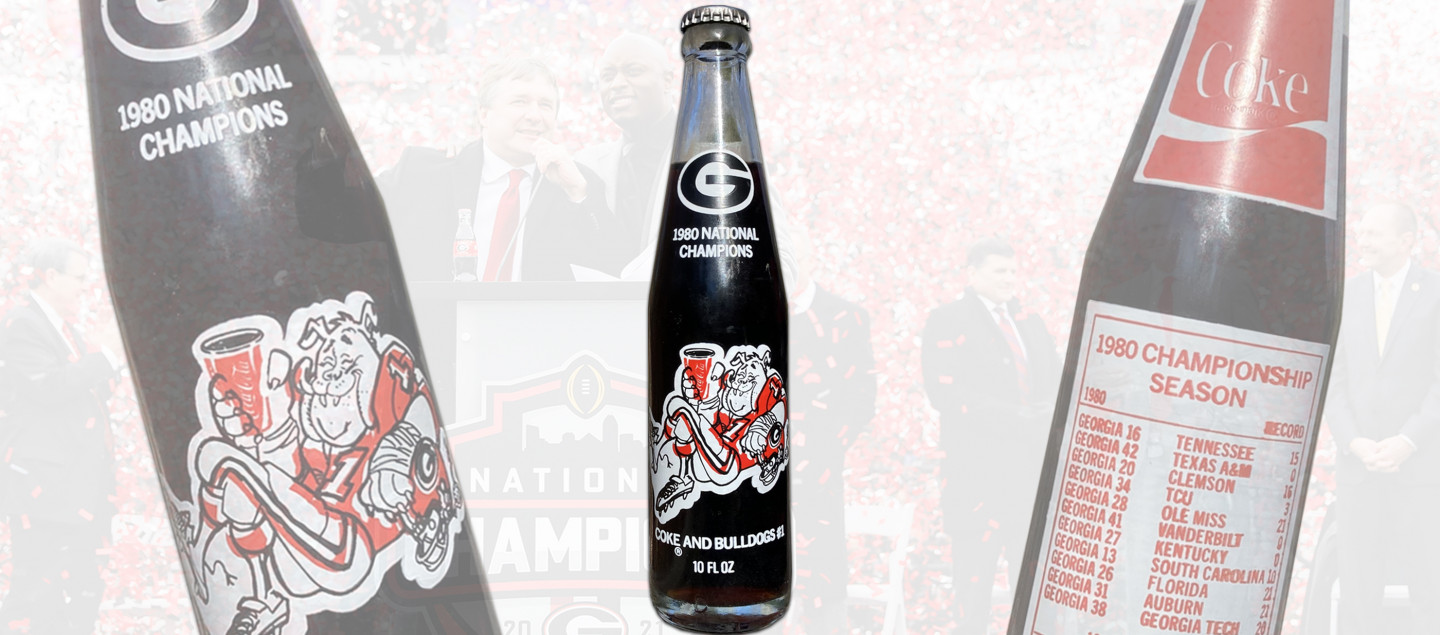UGA expert: Best to keep 41-year-old Coke in the bottle

Within hours of Georgia’s national championship victory over Alabama, bottles were opened in celebration.
Some revelers even guzzled 41-year-old bottles of Coca-Cola, the ones the company produced honoring Georgia’s 1980 national championship.
The ubiquitous souvenirs are a staple in many Georgia households, a reminder of the university’s charmed 1980 season. To some, Georgia’s 33-18 win over the Tide in the College Football Playoff championship game on Jan. 10 that ended the long drought between titles presented the perfect occasion to crack open the now middle-aged beverage.
While the videos posted to social media were, well, entertaining, University of Georgia food safety expert Carla Schwan discouraged the practice.
“Should you be drinking it? The short answer is no,” said Schwan, an assistant professor in the College of Family and Consumer Sciences and UGA Cooperative Extension food safety specialist. “Even though most sodas have an acidic pH and will not support the growth of disease-causing bacteria, there is no research supporting that a 41-year-old expired Coke is safe to drink.”
Schwan pointed out the U.S. Department of Agriculture recommends unopened diet sodas be consumed within three months of their expiration date, and regular sodas within nine months.
“The quality and taste of expired soda may be severely impacted,” Schwan said. “Carbonated soft drinks or sodas will decrease in flavor and carbonation – they may taste awful and ‘flat’ if consumed long after their expiration date.”
While the terms food safety and food quality are often used interchangeably, Schwan noted there is a difference.
Food safety can be thought of as practices and conditions employed to prevent contamination and ensure foods will not cause harm to consumers.
Food quality is associated with consumers’ perceived ideal characteristics of texture, flavor and appearance of foods.
“Food safety keeps consumers safe, and food quality keeps consumers happy,” Schwan said.
While the acidity of most carbonated beverages makes them likely uninhabitable for disease-causing microorganisms, Schwan recommended the liquid remain in the bottle as intended.
“Plus, you may have an unpleasant experience with the awful taste and lack of bubbly fizz,” she said. “It’s best to simply keep them as souvenirs.”